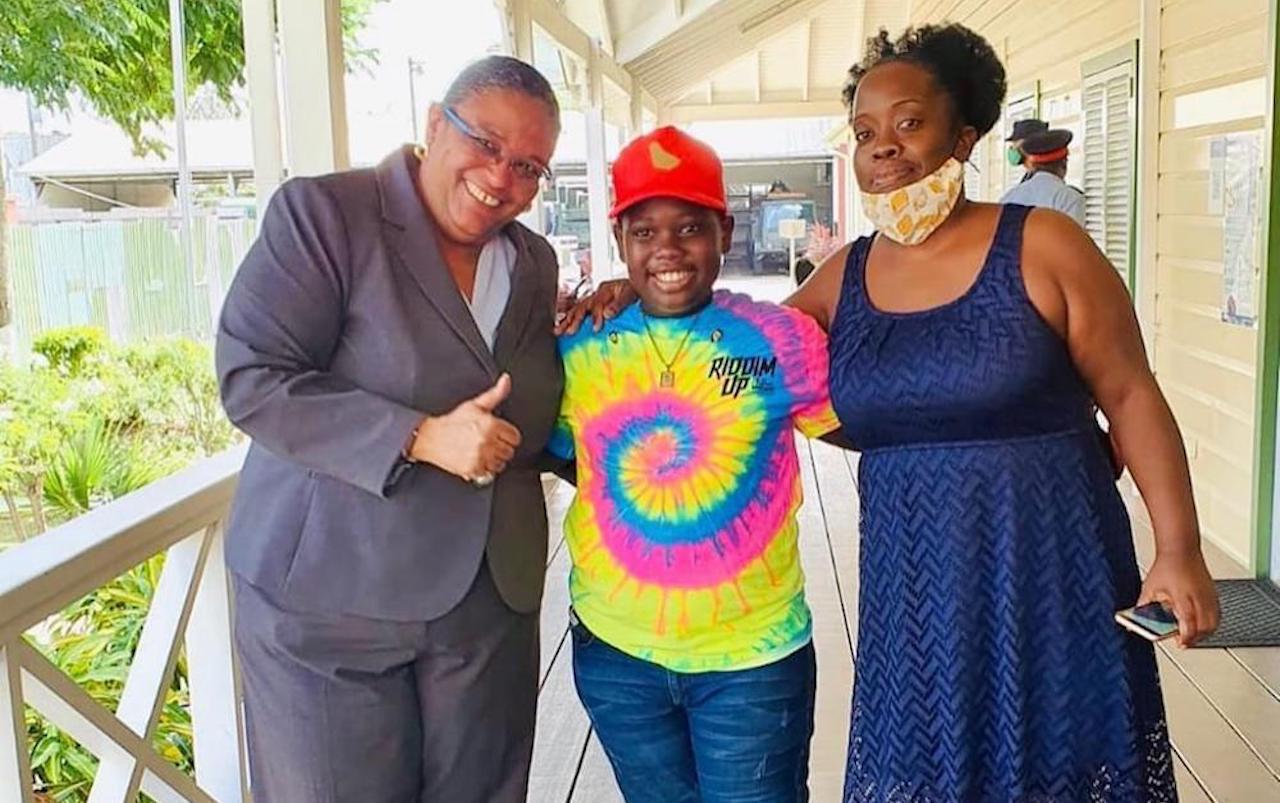
Disclaimer: The views and opinions expressed by this author are their own and do not represent the official position of the Barbados Today Inc.
When I saw the picture in the Barbados Today newspaper of Prime Minister Mia Mottley visiting the youngster Keishawn Thomas, I got goosebumps. Thomas did an interview with Barbados TODAY about his 11-Plus exam experience last Tuesday and in the process made a slight syntax error which he immediately corrected. Unfortunately, someone online instantly jumped on this blunder and started a round of cyberbullying on the 11-year-old.
As a rule, I stay away from politics only commenting on occasion if I am so moved – although the vast majority of my training is in political public relations and I recently co-authored a chapter in the book Political Public Relations – Concepts, Principles, and Applications. This picture of the Prime Minister and Thomas, however, inspired me to write this article which I was contemplating from the time I saw the economist, Dr Kevin Greenidge, Senior Technical Advisor to the Government of Barbados speak at the Barbados Chamber of Commerce’s lunch time meeting earlier this year. His local vernacular and hyperbole were music to my ears since it was the first time in my recollection that I had heard a Bajan scholar speak our lingo in a formal setting.
I was fortunate to study in Jamaica at UWI Mona for my first degree, and I was amazed at how all the university professors embraced their ‘Jamaicaness’ in the classroom. It was the first time I heard a teacher say that there is no good or bad language, but only variations of different languages.
Communication is about understanding, and if the person that you are communicating with understands what you are saying in the way you intended, then you have communicated effectively. Jamaicans know this very well, and they are so proud of their accent and language that even the ones that have travelled and had their accent diluted because of socialization take pains to still speak with a Jamaican accent.
Why then do Jamaicans embrace their local dialect while Bajans scoff at ours and chide each other for speaking so-called ‘bad English’? It is because we do not know or appreciate who we are. We have not had, in the past, a culture of leaders who embraced blackness, or they might have, but it was not obvious. Jamaicans, on the other hand, since the late 60s early 70s, according to the legendary sociologist Stuart Hall, became grounded where they existed and were “no longer trying to be something else, trying to match up to some other image, trying to be something which it could not.” Stuart Hall credited this cultural revolution to Rastafarianism, which Bajans rejected.
I am, therefore, delighted at the leadership I am seeing from the present Government in this regard, the promotion of important cultural cues such as dialect, skin color, hair, (big up Minister Marsha Caddle) fashion, music and the like.
This could not be possible without informed leadership and PM Mottley demonstrated to me, with the visit to Thomas, that the new cultural ethos my PR radar was sensing was no happy coincidence. PM Mia Mottley gave me goose pimples because her actions demonstrated how serious she takes the business of cultural identity, that even an 11-year-old’s plight for her is given the same level of importance as an interview with the international media, which, by the way, she has done in a beautiful Barbadian accent, punctuated appropriately with a few local idioms.
I cannot help but feel proud that she is not only leading us towards economic mobility, but she is also by her words and actions, starting a revolution in Barbados which will help us to recognize, accept and be proud of our own unique cultural identity.
Finally, in addressing Caribbean culture and identity, Stuart Hall noted that they “are not in any sense separate or removed from the problems of political mobilization, of cultural development, of economic development and so on. The more we know and see of the struggles of the societies of the periphery to make something of the slender resources available to them, the more important we understand the questions and problems of cultural identity to be in that process.”
I congratulate our Prime Minister for making this connection and for not just addressing the fiscal issues, but for also being “woke” and paying attention to the local matters that will in time help to put all the pieces of the puzzle together, toward Bajans embracing our culture and identity.
Pamala Proverbs is a public relations practitioner and scholar and MD of PRMR Inc.




